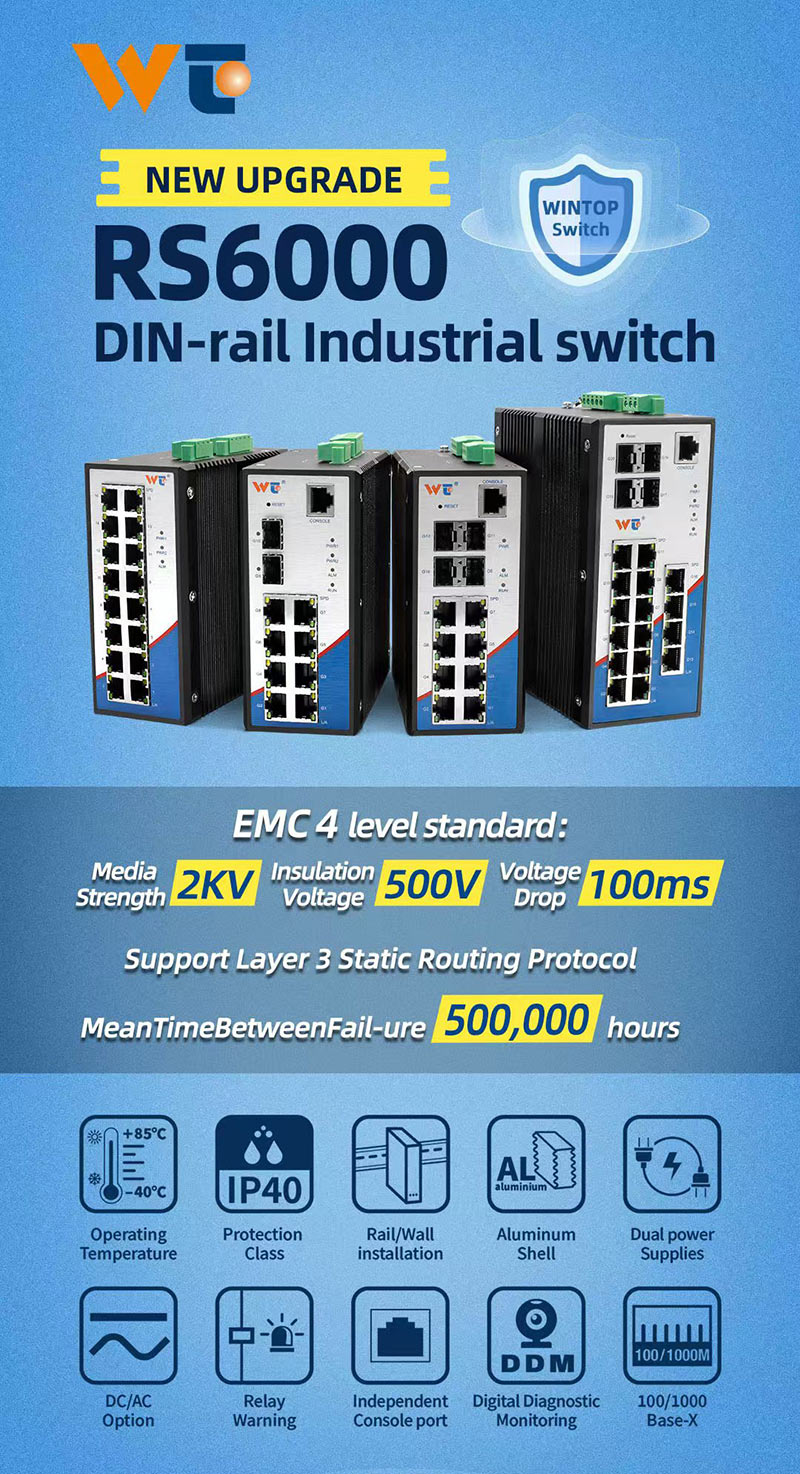Enhancing Control Accuracy in Nuclear DCS Systems: The Key Role of Industrial Switches
Introduction
In the realm of nuclear power, precision and reliability are paramount. A small error can lead to significant consequences, making the control systems' accuracy critical. The Distributed Control System (DCS) in nuclear power plants must maintain high levels of precision to ensure both efficiency and safety. But how can we enhance this control accuracy? The answer lies in one of the less conspicuous but vital components: industrial switches. These switches provide the stability and efficiency required to maintain the delicate balance of a nuclear power plant's operations.
The Importance of Control Accuracy in Nuclear DCS Systems
Control accuracy in nuclear DCS systems cannot be overstated. These systems are responsible for monitoring and controlling various processes within the plant, from reactor temperature to pressure levels. Precise control ensures that the plant operates within safe parameters, preventing potential accidents. Enhanced control accuracy means better performance, fewer errors, and ultimately, a safer environment for both workers and the surrounding community.
The Role of Industrial Switches
Industrial switches play a crucial role in ensuring the stability and efficiency of nuclear DCS systems. These switches act as the backbone of communication within the system, facilitating the seamless exchange of data between various control modules. High-quality industrial switches ensure that this data transfer is fast, reliable, and free of errors, which is essential for maintaining the overall accuracy of the control system.
Case Study: A Success Story in Control Accuracy
Consider the case of a nuclear power plant that upgraded its DCS system by integrating advanced industrial switches. Before the upgrade, the plant faced frequent communication lags and data inaccuracies, leading to inefficient operations and increased risk. After implementing high-grade industrial switches, the plant witnessed a dramatic improvement in control accuracy and operational efficiency. The switches provided stable and rapid data transmission, enabling the control system to function with higher precision. This upgrade not only enhanced the plant's safety but also optimized its performance, demonstrating the critical role of industrial switches in nuclear DCS systems.
Enhancing System Stability
Stability in a nuclear DCS system is synonymous with safety. Industrial switches contribute to this stability by ensuring continuous and reliable communication. They are designed to withstand harsh industrial environments, providing a robust solution that minimizes the risk of system failures. By enhancing system stability, these switches help maintain consistent control, which is vital for the safe operation of a nuclear power plant.
Detailed Scenario: A Day in the Life of a Nuclear DCS System
Imagine a typical day in a nuclear power plant: the reactor is operating at optimal levels, with the DCS system constantly monitoring and adjusting parameters to maintain safety and efficiency. In such a scenario, the industrial switches are in constant operation, facilitating the rapid exchange of data. They ensure that every signal sent and received is accurate and timely, allowing the control system to react swiftly to any changes. This continuous flow of precise information is what keeps the reactor stable and the plant running smoothly.
Achieving High Efficiency
Efficiency is a critical factor in the operation of any industrial system, and nuclear power plants are no exception. High efficiency means better resource utilization, lower operational costs, and reduced environmental impact. Industrial switches contribute to this efficiency by providing fast and reliable communication, which is essential for the coordinated operation of the plant's various systems. This coordination ensures that each component operates at its optimal level, maximizing overall plant efficiency.
Efficiency in Practice: Real-World Benefits
In practice, the efficiency brought about by industrial switches translates into tangible benefits. For instance, a nuclear power plant that upgraded its industrial switches saw a significant reduction in downtime, leading to increased productivity and reduced maintenance costs. The enhanced communication capabilities allowed for more precise control, reducing the need for frequent adjustments and interventions. This not only improved the plant's operational efficiency but also extended the lifespan of its equipment, showcasing the real-world benefits of high-quality industrial switches.
Conclusion
The accuracy and efficiency of nuclear DCS systems are crucial for the safe and effective operation of nuclear power plants. Industrial switches, though often overlooked, play a vital role in enhancing these aspects. By providing stable and reliable communication, they ensure that the control system operates with precision, contributing to overall plant safety and efficiency. As demonstrated by various case studies and real-world examples, investing in high-quality industrial switches is a prudent decision that can lead to significant improvements in nuclear power plant operations.
In a world where precision and reliability are increasingly important, the role of industrial switches in nuclear DCS systems cannot be ignored. They are the unsung heroes that ensure our nuclear power plants operate safely and efficiently, highlighting the critical importance of this often-overlooked component.
